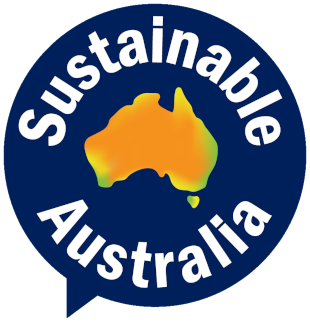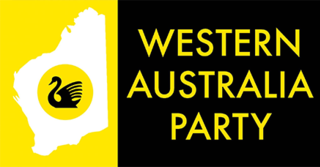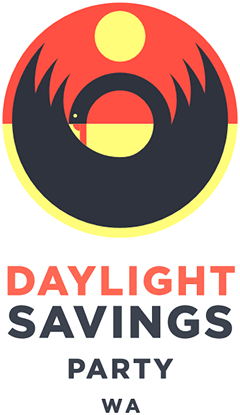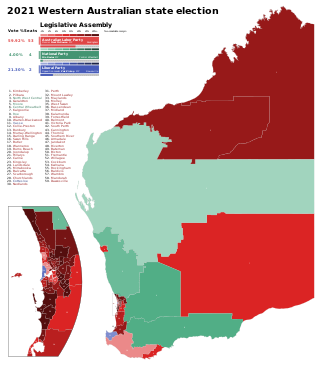Electoral systems of the Australian states and territories are broadly similar to the electoral system used in federal elections in Australia.

The Family First Party was a conservative political party in Australia which existed from 2002 to 2017. It was founded in South Australia where it enjoyed its greatest electoral support. Since the demise of the Australian Conservatives into which it merged, it has been refounded in that state as the Family First Party (2021), where it contested the state election in 2022, but failed to win a seat.

The Shooters, Fishers and Farmers Party (SFF) is an Australian political party. It primarily advocates for increased funding and services for rural and regional Australia, protecting the right to farm, enhancing commercial and recreational fishing, tougher sentencing for illegal firearm trade and usage, and relaxing gun control for law abiding citizens.
A group voting ticket (GVT) is a shortcut for voters in a preferential voting system, where a voter can indicate support for a list of candidates instead of marking preferences for individual candidates. For multi-member electoral divisions with single transferable voting, a group or party registers a GVT before an election with the electoral commission. When a voter selects a group or party "above the line" on a ballot paper, their vote is distributed according to the registered GVT for that group.
Legalise Cannabis Australia, formerly the Help End Marijuana Prohibition (HEMP) Party, is a single-issue Australian political party. It has a number of policies that centre around the re-legalisation of cannabis for personal, medicinal and industrial uses in Australia.

The Liberal Democratic Party, shortened as LDP, Liberal Democrats, or Lib Dems, is an Australian political party founded in Canberra in 2001. The party espouses smaller government and supports policies that are based on classical liberal, libertarian principles, such as lower taxes, opposing restrictions on civil liberties, decentralisation, utilising nuclear energy, and the relaxation of smoking laws.

The Non-Custodial Parents Party was a minor political party in Australia registered between 1999 and 2020. It supported less government control of many aspects of daily family life, focusing on reform of family law and child support.

The 2008 Western Australian state election was held on Saturday 6 September 2008 to elect 59 members to the Legislative Assembly and 36 members to the Legislative Council. The incumbent centre-left Labor Party government, in power since the 2001 election and led since 25 January 2006 by Premier Alan Carpenter, was defeated by the centre-right Liberal Party opposition, led by Opposition Leader Colin Barnett since 6 August 2008.
Glenn Druery is an Australian political strategist, electoral campaigner and ultra-distance cyclist. He has played a leading role in the electoral success of various micro and minor parties in Australia since the mid-1990s.

The Sustainable Australia Party, formerly the Sustainable Population Party, is an Australian political party formed in 2010.

The 2017 Western Australian state election was held on Saturday 11 March 2017 to elect members to the Parliament of Western Australia, including all 59 seats in the Legislative Assembly and all 36 seats in the Legislative Council. The eight-and-a-half-year two-term incumbent Liberal–WA National government, led by Premier Colin Barnett, was defeated in a landslide by the Labor opposition, led by Opposition Leader Mark McGowan.

The United Australia Party (UAP), formerly known as Clive Palmer's United Australia Party and the Palmer United Party (PUP), is an Australian political party formed by mining magnate Clive Palmer in April 2013. The party was deregistered by the Australian Electoral Commission in 2017, revived and re-registered in 2018, and voluntarily deregistered in 2022. The party fielded candidates in all 150 House of Representatives seats at the 2013 federal election. Palmer, the party's leader, was elected to the Division of Fairfax and it reached a peak of three senators following the rerun of the Western Australian senate election in 2014. When the party was revived under its original name in 2018, it was represented by ex-One Nation senator Brian Burston in the federal parliament.
The Minor Party Alliance (MPA) is a collaborative undertaking of small Australian political parties, created by Glenn Druery's "Independent Liaison" business, which assists in organising preference meetings and negotiating preference flows between minor parties in Australia. The aim of the Alliance is the election of Alliance candidates to Australian upper houses based upon the accumulation of their primary votes and the registered "above-the-line" party preferences to reach an electoral quota. For the Australian Senate, the quota for a half-Senate election in each State is normally 14.3%. The MPA effectively aims to "game" the electoral system, an act it believes to be justified, based upon their perception that the Australian electoral system is unfair and heavily biased against minor parties.

Flux, also known as Flux the Sytem! and Liberals For Climate - The Flux Network, was a political party and movement that aimed to replace the world's elected legislatures with a new system known as issue-based direct democracy (IBDD). Flux originated in and was most active in Australia, but also had groups existing in the United States and Brazil.

The Western Australia Party is a regional political party active in Western Australia.
Fluoride Free WA Party was a political party registered for elections in Western Australia. Its main policy is to end mandatory water fluoridation in Western Australia. The party is a distinct legal entity from an advocacy organisation named Fluoride Free WA Inc, however the party was formed by the advocacy group to increase media interest. The party merged into the Health Australia Party in 2019.

The Daylight Saving Party was a political party in Western Australia. It was founded in September 2016 by brothers Brett and Wilson Tucker. It was registered as a political party on 29 November 2016. The party was deregistered in February 2023, but remains active.

The 2021 Western Australian state election was conducted on Saturday 13 March 2021 to elect members to the Parliament of Western Australia, where all 59 seats in the Legislative Assembly and all 36 seats in the Legislative Council were up for election.

SA-Best, formerly known as Nick Xenophon's SA-BEST, is a political party in South Australia. It was founded in 2017 by Nick Xenophon as a state-based partner to his Nick Xenophon Team party. After an unsuccessful 2022 South Australian state election, the party has two representatives in the South Australian Legislative Council, Connie Bonaros and Frank Pangallo, whose current terms expire in 2026.

The Australian Federation Party (AFP), also known as AusFeds and formerly known as the Country Alliance and the Australian Country Party, is an Australian political party. Founded in 2004 by four rural Victorians, the party lodged its initial registration with the Victorian Electoral Commission on 15 August 2005.














